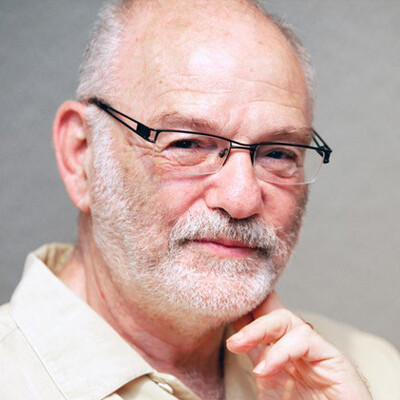另类事实 "和颠覆性技术时代的决策。
鉴于国际形势令人担忧,我们有理由对公共生活和私人生活中道德是如何被框定、合并或在某些情况下完全被忽视的表示极大的关注。
鉴于党派之争日益加剧、公然违反国际法的行为以及变革性技术(有时是有害技术)的部署,我们必须认识到伦理是负责任的领导和公共政策的重要工具。
但是,除了简单的认可之外,我们还必须认真审视道德是如何嵌入我们的决策中的,这样才能有效地利用道德来做好事,而不是像今天这样被当作达到自私目的的手段。
对某些人来说,伦理已成为一种二元对立、零和思维的练习。对另一些人来说,伦理只是部落政治的工具。在一个充斥着 "另类事实 "和刻意清洗伦理的世界里,旨在解决内在矛盾和权衡的真正的道德推理常常成为牺牲品。
无论你是在选举中投票、在大学就读、在金融机构工作、参与 "零工经济",还是在政府部门任职,我们都必须挑战自我,了解一些基本问题,以便在瞬息万变的世界中重新审视伦理。
首先,特别是在当前,推进伦理议程需要哪些工具?
其次,在价值观发生冲突和存在许多不确定因素的情况下,怎样才能促进真正的、真诚的努力,使道德规范成为一种工具,用于推理和解决困难挑战?
首先,我们需要认识到社会存在 "完美问题"。
如今的道德争论通常以义愤填膺和道德确定性的形式出现。一切都是二元对立的。我们生活在一个 "零和"、"赢家通吃 "的社会,伦理也不例外。在这种情况下,如果你不同意我的观点,你不仅错了,而且还是个坏人。
我们常常忽略一个最基本的事实:人无完人。人类和他们生活的家庭和社区一样,都是有缺陷的。价值观冲突和取舍在所难免。没有人可以垄断美德。
事实上,优秀的工程师都明白,大自然或他们的设计所赋予的每一个最大功能,都会伴随着固有的缺陷、弱点或脆弱性。例如,鸡蛋是一种坚固的保护环境,但在受到特殊撞击时会变得脆弱。即使是超强的金属也缺乏韧性,受压时会变脆。
尽管我们认识到自然和日常生活中存在缺陷,但我们仍然以一种期待完美的方式生活着。乌托邦 "一词源于希腊语,意为 "没有地方",这绝非巧合。它并不存在。许多乌托邦文学作品都以乌托邦结尾,这也绝非巧合。人类社会不可能完美无缺。
历史证明了清教徒式道德观的破产。我们可以从道德恐慌中看到这一点,道德恐慌的起因是对单一真理的信仰以及恐惧和不安全感。这种模式似曾相识。一种邪恶被确认。然后必须将其从社会中根除。
对于美国人来说,我们会想到历史上的例子,如塞勒姆巫术审判和红色恐慌,以及延续至今的移民政策中的仇外心理。在今天的俄罗斯,我们看到的是对幽灵般的纳粹威胁的固执。
一元化的道德主张弊大于利。这就是为什么我们需要重新认识伦理学。它不仅是哲学家和学者的工具,也是个人可以参与的积极过程,有助于为我们的生活指明方向,并为公共辩论提供令人尊敬的结构。
伦理学的目标是最终目的或终极目标。它的主要特征是一个不断反复的过程,可以不断修正和修订。因此,伦理学是一种用于决策的实用工具,而不是一套束之高阁的静态原则。
虽然人们往往能就不杀人、不偷盗、不撒谎等原则或价值观达成共识,但每项原则都有其局限性和例外情况。更重要的是,很少有实际选择只需要实现一个目标。在复杂的情况下,许多价值观都会发挥作用,不同的价值观会发生冲突,或者不同的利益相关者会有不同的优先考虑。要应对复杂的挑战,很少只有一种行动方案,往往有多种方案,每种方案都有不同的好处、风险和不良后果。
面对困难的权衡和必须改善伤害的伦理方法并不是主流模式。但它应该是。
订阅《卡内基伦理通讯》,了解乔尔-罗森塔尔的最新分析
The Information Age simultaneously presents significant ethical challenges and opportunities.
Collectively, information technologies, biotechnologies, and nanotechnologies have given birth to an inflection point in human history: the Information Age. Re-envisioning ethics will be helpful for all realms of human endeavor, but it is particularly essential for addressing the challenges posed by emerging technologies that are rapidly transforming daily life and reshaping human destiny.
To make matters more difficult, there are many uncertainties about how emerging technologies will impact society. And therefore, we must consider many options or paths forward in making choices regarding near-term considerations.
The benefits, risks, and societal impacts of technologies being deployed or likely to be developed need to be evaluated. In some cases, choices must be made as to which technologies can be embraced, which should be rejected, and how to shape and/or regulate technologies capable of being used in harmful or undesirable ways.
Disagreements are already evident. Some technologies available have been utilized for inherently destructive purposes. Social media is being used to empower misinformation and lies. The collection and conglomeration of personal data can undermine privacy and empower surveillance tools and techniques to manipulate behavior for marketing or political purposes.
As technologies such as artificial intelligence increasingly shape everyday life, there is a struggle for the ethical high ground. Corporations want to be seen as virtuous—or at least not an enemy of the good. And so, we see leaders like Larry Fink, CEO of BlackRock, the largest asset management company in the world, advocating that corporations embrace social responsibility and "a sense of purpose." We also see a proliferation of private sector initiatives such as AI for Good and the Partnership for AI seeking to align corporate interests with broad societal goods. Similarly, universities are attracting major contributions to establish hubs for the study of AI and its practical applications.
But with these developments, we must ask ourselves: Do ideas follow money? Or does money follow ideas? In the case of AI ethics, the verdict is not yet in. However, one thing is clear. There are real incentives for businesses and governments to be aligned with ethics initiatives, if only to be seen as being on the right side of history.
Ethics washing is a reality in the binary world in which we live—whether by corporations, politicians, or universities. Much lip service is given to virtues such as diversity, equity, and inclusion, even as the goals and means to achieve them remain ill-defined and elusive.
It is time for a genuine re-envisioning of ethics.
A re-envisioning of ethics is certainly not a rejection of the past. Ethics will continue to be grounded in shared principles as goals to strive to fulfill. The Golden Rule or something like it exists in all traditions and offers a good starting point. The dignity and rights of each individual has become sacrosanct. What exactly those rights are and require of us and our governments remains a subject for debate and further elucidation.
The various approaches to ethics should not be reduced to algorithms for determining what is absolutely right and good. Each approach underscores differing considerations that we would like to have factored into good decision-making.
A re-envisioning of ethics should center around its function as a tool for helping make difficult decisions where values, needs, and goals conflict. Good ethics is about the application of skillful means in working through such difficult challenges towards an imperfect yet acceptable resolution. In evaluating differing courses of action, each with varying benefits, disadvantages, and weaknesses, good decision-making requires more than selecting the best option forward. Good decisions also entail addressing those detriments or harms created by the choice made.
Looking ahead, ethical reasoning requires input from a variety of perspectives and experiences as well as collaborative problem solving across disciplines and professions. An appeal to virtue will be essential, but virtue alone will not be enough.
This moment calls for an open and good-faith effort to empower ethics as a tool for better living rather than as a placebo dispensed by the powerful to justify their interests. Whether this happens is an open question.
In the meantime, beware of those preaching perfection. They may be the enemies of the good.
Joel H. Rosenthal is president of Carnegie Council for Ethics in International Affairs. Subscribe to the Carnegie Ethics Newsletter to receive future updates from Joel Rosenthal translating ethics, analyzing democracy, and examining our increasingly interconnected world.
Wendell Wallach is a Carnegie-Uehiro Fellow at Carnegie Council for Ethics in International Affairs, where he co-directs the Artificial Intelligence & Equality Initiative (AIEI).





